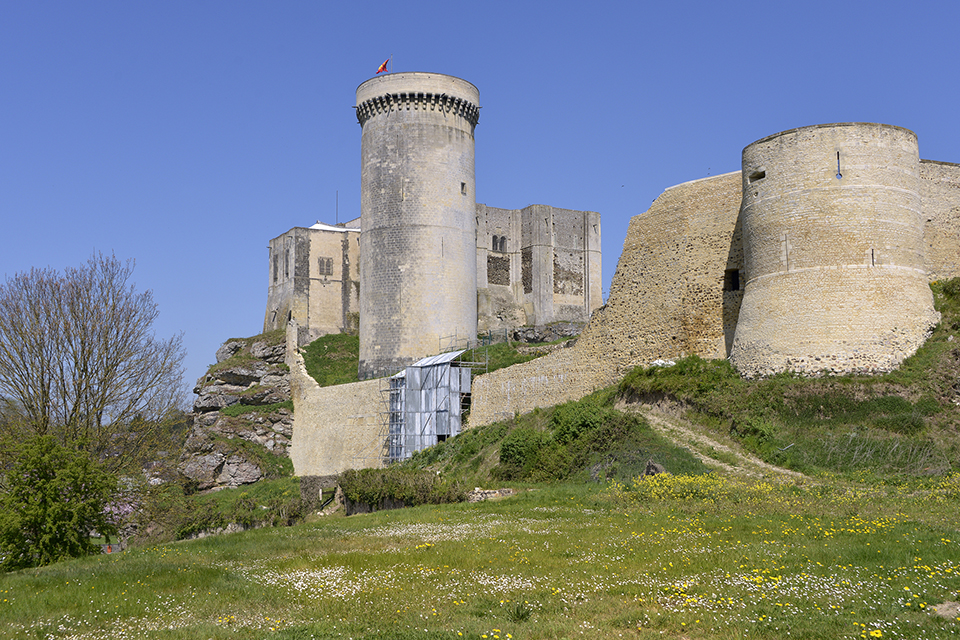The history of Normandy and the Normans continue to excise the imagination of historians, archaeologists and scholars. A handful of recently published books offer introductions as well as more specialised studies
History of Normandy and the Normans. Norman Rule in Normandy, 911-1144
by Mark Hagger
Boydell Press 2017
This book explores the geographical and political development of what would become the duchy of Normandy, and the relations between the dukes and these rivals for their lands and their subjects’ fidelity. It looks, too, at the administrative machinery the dukes built to support their regime, from their toll-collectors and vicomtes (an official similar to the English sheriff) to the political theatre of their courts and the buildings in which they were staged. At the heart of this exercise are the narratives that purport to tell us about what the dukes did, and the surviving body of the dukes’ diplomas. Neither can be taken at face value, and both tell us as much about the concerns and criticisms of the dukes’ subjects as they do about the strength of the dukes’ authority. The diplomas, in particular, because most of them were not written by scribes attached to the dukes’ households but rather by their beneficiaries, can be used to recover something of how the dukes’ subjects saw their rulers, as well as something of what they wanted or needed from them. Ducal power was the result of a dialogue, and this volume enables both sides to speak.
Heirs of the Vikings: History and Identity in Normandy and England, c.950-c.1015
by Katherine Cross
York Medieval press 2018
Countering interpretations which see claims of Viking identity as expressions of contact with Scandinavia, the comparison demonstrates the local, political significance of these claims. In doing so, the book reveals the earliest origins of familiar legends which at once demonize and romanticize the Vikings – and which have their roots in both Anglo-Saxon and Norman traditions.
Dr Katherine Cross is a historian of the early Middle Ages at the BritishMuseum and Wolfson College, University of Oxford.
The Normans in the Mediterranean
Ed. by Emily A. Winkler and Liam Fitzgerald
Series: Medieval Identities: Socio-Cultural Spaces
Brepols 2021
The contributions gathered here ask questions of politics, culture, society, and historical writing. How should we characterize the Normans’ many personal, local, and interregional interactions in the Mediterranean? How were they remembered in writing in the years and centuries that followed their incursions? The book questions the idea of conquest as replacement, examining instead how human interactions created new nodes and networks that transformed the medieval Mediterranean. Through studies of the Normans and the communities who encountered them–across Iberia, the eastern Roman Empire, Lombard Italy, Islamic Sicily, and the Great Sea–the book explores macro- and micro-histories of conquest, its strategies and technologies, and how medieval people revised, rewrote, and remembered conquest.
The Normans and the “Norman Edge”: Peoples, Polities and Identities on the Frontiers of Medieval Europe
Ed by Keith J Stringer and Andrew Jotischky
Routledge 2019
The book includes panoramic essays that dissect the conceptual and methodological issues concerned, suggest strategies for avoiding associated pitfalls, and indicate how far and in what ways the Normans and their legacies served to reshape sociopolitical landscapes across a vast geography extending from the remoter corners of the British Isles to the Mediterranean basin. Leading experts in their fields also provide case-by-case analyses, set within and between different areas, of themes such as lordship and domination, identities and identification, naming patterns, marriage policies, saints’ cults, intercultural exchanges, and diaspora– homeland connections.
The Normans and the ‘Norman Edge’ therefore presents a potent combination of thought-provoking overviews and fresh insights derived from new research, and its wide-ranging comparative focus has the advantage of illuminating aspects of the Norman past that traditional regional or national histories often do not reveal so clearly. It likewise makes a major contribution to current Norman scholarship by reconsidering the links between Norman expansion and ‘state-formation’; the extent to which Norman practices and priorities were distinctive; the balance between continuity and innovation; relations between the Normans and the indigenous peoples and cultures they encountered; and, not least, forms of Norman identity and their resilience over time. An extensive bibliography is also one of this book’s strengths.
Lives, Identities and Histories in the Central Middle Ages
Ed by Julie Barrau and David Bates
Cambridge University Press 2021
FEATURED PHOTO:
Chateu de Falaise, Normandy. Photo 81145512 / Falaise © Musat Christian/Dreamstime.com
